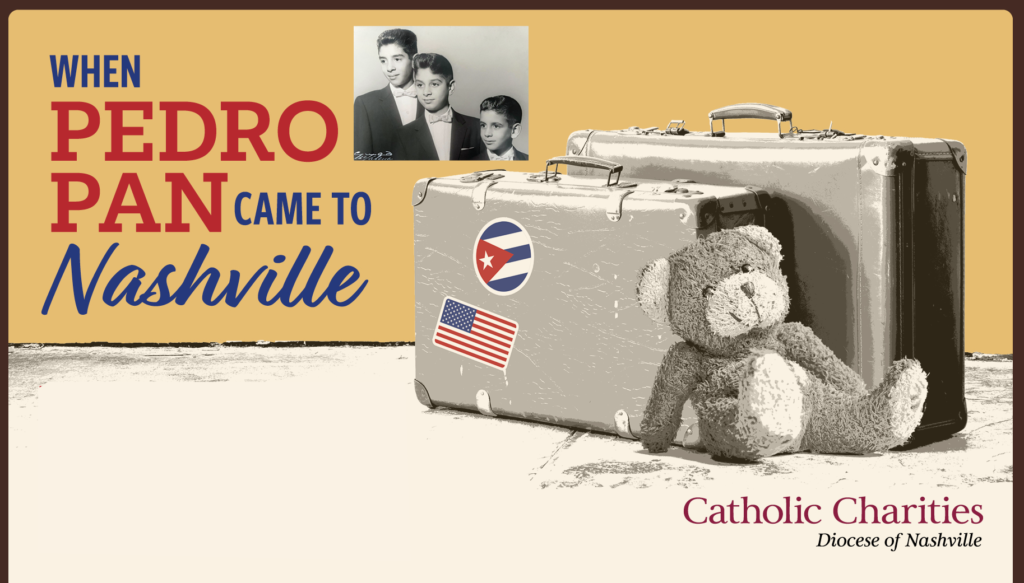Imagine if you were a child displaced from your home country, suddenly separated from your parents, and grappling to fit in among strangers.
When Pedro Pan Came to Nashville, a film directed by Jon Kent, was produced by Catholic Charities and tells the story of the young Fernandez brothers. Luis, Carlos, and Pablo were among 14,000 children evacuated from Cuba in 1960-62. Forty-three of those children settled in Nashville in 1962 and lived with foster families for months to years before being reunited with family members.
The Fernandezes lived a comfortable life in Cuba, but fearing for their children’s safety amid the communist takeover of the island nation, they arranged for their three sons to escape via the underground Operation Pedro Pan, not knowing if they would ever see them again. The initiative is the largest recorded exodus of unaccompanied minors in the Western Hemisphere. What became of those children? Our film provides an answer.
The sudden and rapid evacuation of Afghanistan in the fall of 2021 galvanized U.S. public opinion favorably regarding refugees, as Americans supported those who had fought alongside U.S. troops to defeat the Taliban.
Images of Ukrainian suffering dominates American media. Displacement, loss of everything that is familiar, forced migration—this is what we see in the current conflict a world away. And yet these crises occurred repeatedly in the recent past as well as over the long trajectory of war and conflict.
Disagreement about who to allow into our country, and how many of those “other” people to allow in, has been part of the dialogue among citizens in the United States for more than 100 years.







